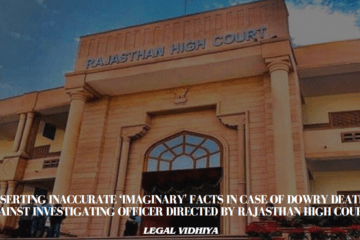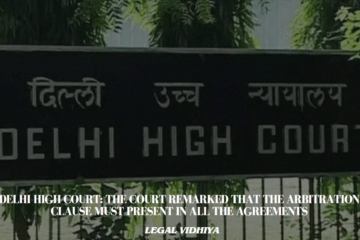
In a significant development, the High Court has upheld the acquittal of five accused individuals involved in a murder case dating back to March 6, 1996. The incident revolved around the murder of Siddhnath Patel, leading to legal proceedings against the accused under Section 302 of the Indian Penal Code, with one individual facing charges under Section 109 read with Section 302.
Chandrasekhar Patel, the deceased’s son and witness PW-2, and the State had appealed against the High Court’s order of acquittal. Senior counsel Sanjay R. Hegde supported PW-2’s appeal, stressing that the
prosecution established the accused’s culpability based on the testimony of key witnesses PW-1 to PW-5.
However, the Appellate Court highlighted the scrutiny required when dealing with appeals against acquittals. It emphasized the need to re evaluate the evidence to determine if the initial court’s acquittal decision was a plausible conclusion based on the available records. The court noted that merely finding an alternative viewpoint isn’t enough to overturn an acquittal, given the presumption of innocence.
Upon independent analysis, the court found discrepancies in the testimonies of crucial witnesses. It particularly highlighted issues with PW-1’s cross-examination, where crucial questions challenging the witness’s credibility were disallowed by the Trial Court. Such limitations in questioning could have affected the outcome, according to the judgment.
Additionally, other key witnesses, including PW-2 to PW-5, failed to provide substantial evidence or corroborate critical details regarding the
incident. The court expressed doubts about the truthfulness of their accounts and criticized the absence of efforts to record statements from alleged independent witnesses present at the crime scene.
Ultimately, the Appellate Court concluded that the High Court’s decision to acquit the accused was a plausible one, given the lack of concrete evidence and the inconsistencies in witness testimonies. Consequently, it dismissed the appeals, emphasizing the insufficiency of evidence to establish guilt beyond a reasonable doubt.
The High Court’s affirmation of the acquittal highlights the challenges posed by insufficient evidence and inconsistencies in witness testimonies, leading to the dismissal of appeals seeking to overturn the initial judgment.
Written by Samruddhi Kulkarni from ILS Law College pune (BA.LL.B).
Disclaimer: The materials provided herein are intended solely for informational purposes. Accessing or using the site or the materials does not establish an attorney-client relationship. The information presented on this site is not to be construed as legal or professional advice, and it should not be relied upon for such purposes or used as a substitute for advice from a licensed attorney in your state. Additionally, the viewpoint presented by the author is of a personal nature.




0 Comments